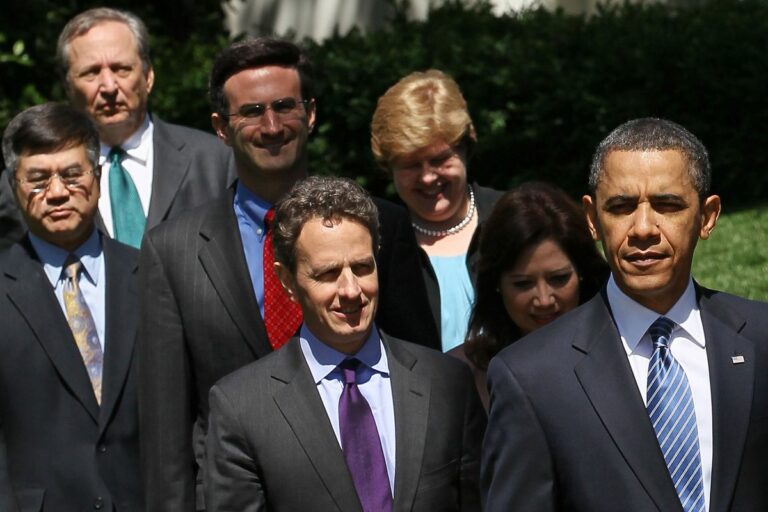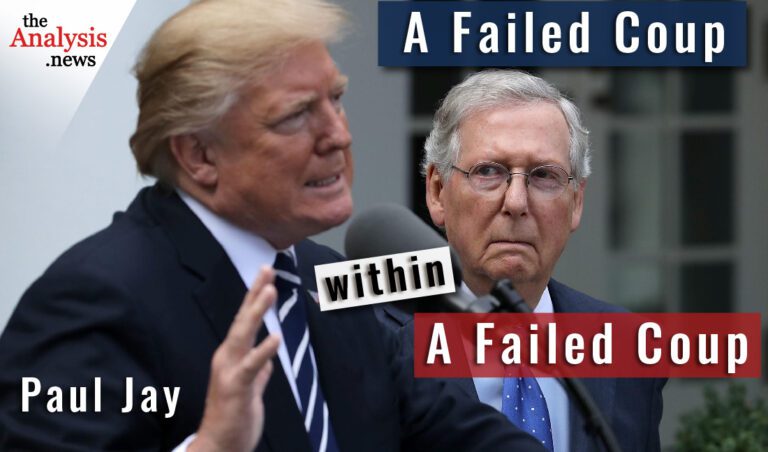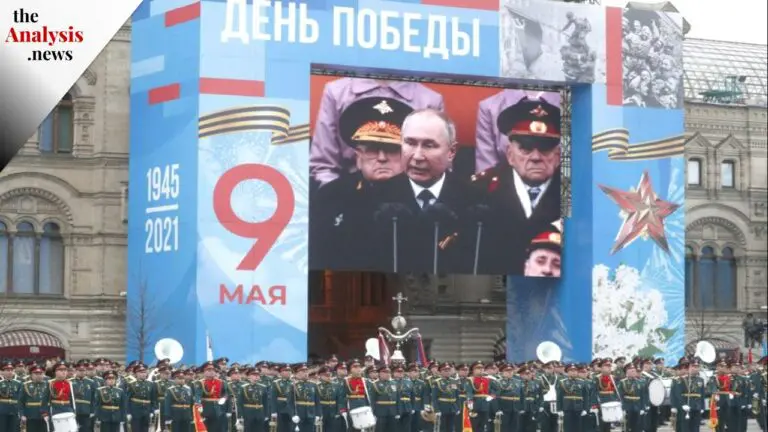This interview was originally published June 4, 2015. On Reality Asserts Itself, Mr. Appy says that Israeli preemptive and punitive war became a model for US foreign policy.
PAUL JAY, SENIOR EDITOR, TRNN: Welcome back to The Real News Network and Reality Asserts Itself. I’m Paul Jay. In Christian Appy’s book American Reckoning: The Vietnam War and Our National Identity, he writes, to hawkish Americans, the Vietnam War demonstrated a lamentable decline in national will. Defeat was attributed not to the weakness of the American cause, but to the weakness of American character on the political and cultural left. They feared that the social movements of the 1960s had engendered a permanent revulsion to the use of military force. It was as if antiwar sentiment had infected the country’s spine and heart with a debilitating disease. By 1980, hawks had found a diagnostic label for the malady: the Vietnam syndrome. Now joining us in the studio to talk about all of this and how these things continue today is Christian Appy. Thanks for joining us again.
CHRISTIAN G. APPY, AUTHOR, AMERICAN RECKONING: Thank you. JAY: So, once again, his book is American Reckoning: The Vietnam War and Our National Identity. And Christian teaches at the University of Massachusetts Amherst. When you look at the speech of Prime Minister Benjamin Netanyahu, this theme that it’s a product of American weakness–and you get–you know he’s talking about the Vietnam syndrome, even though he doesn’t mention it–the inability to stand up to Iran, the inability to be willing to go to war, that’s something that’s sort of wrong with American national character. We Israelis, we’re willing to go. We can bomb people in Gaza. In fact, we’ll bomb women and children. And even if we’re called war criminals, we don’t care. We’ll do what it takes. Do you guys have the spine to do what it takes? We’re seeing the same narrative today.
APPY: Yes. And the Israeli model, I think, had a real influence on groups, starting in the ’70s to the present day, as an example of precisely this kind of toughness. I mean, there was in the ’70s this group called the Committee on the Public Danger, filled with lots of the neocons that really came to the forefront under the Bush administration. But that was followed in the ’90s by the development of this Project for a New American Century. But they really very much did see the Israelis’ willingness to use preemptive violence as a model for what became the Bush doctrine, this idea that we reserve for ourselves the right to attack any nation or subnational group that we deem a threat to our security.
JAY: And Netanyahu was actually directly in those circles. He was part of that gang.
APPY: Yes. Right. Yeah. True.
JAY: So talk more about that, this need to develop this ability to go to war to achieve U.S. foreign-policy objectives, in a sense fighting American public opinion.
APPY: Yeah. Well, with–Reagan’s an interesting figure in this, because he clearly wanted to demonstrate American power, but he understood that the American public was not about to really tolerate some long, protracted, indecisive conflict. So he was going to pick small, winnable wars, as in Grenada. And interestingly enough, at the very time of that war, just before it, we had introduced a number of troops into Lebanon as so-called peacekeepers, and supposedly neutral, though of course we were siding with the government and had been siding with Israel, of course, so we were not at all perceived as neutral peacekeepers by many of the Lebanese. So, just days before the invasion of Grenada, there was a bombing of a Marine barracks near the Beirut airport. A suicide bomb truck managed to kill more than 240 Americans. And one might have expected Reagan, given everything he had said to denounce Carter as weak and way too willing to negotiate with terrorists, he might have used that for a pretext for a massive escalation of our intervention in Lebanon. But interestingly enough, within four months he withdraws. He calls it a redeployment. But he himself in some ways was affected a bit by a certain kind of Vietnam syndrome, an unwillingness to get mired in a protracted, indecisive struggle. And Colin Powell, who was an important figure, really, starting in the Reagan administration, on into the 21st century, he had a set of preconditions that in many ways were quite sensible. He said that we should not go to war again unless it’s a last resort, unless it has the broad support of the public, and even the international community. There should be clear national interest at stake. The objective should be achievable. And if all else fails, if things go awry, we should have an exit strategy. So this became sort of the famous Powell doctrine. And it did offer a kind of minor break on American interventions, though we continued to have a secret war in Central America, and we did attack Libya, we occupied Saudi Arabia in the run-up to the Persian Gulf War, we invaded Panama. So we’re involved in lots of these countries, but not in such a massive way or such a prolonged way as in Vietnam. But after 9/11, of course, the Powell doctrine just goes out the window. And even Powell himself, you know,–
JAY: Throws it out the window.
APPY: –who privately objected to some of these new post-9/11 interventions, was a team player. This goes back to that discussion we had about being part of this war-making machine: you’ve got to buy into the consensus. And so he’d silenced his own private concerns and famously went to the United Nations and said with absolute certainty that he knew that Iraq had weapons of mass distraction. He even gave the total numbers of different kinds of things–this many gallons of anthrax, and this many of that–and even went on to discuss the so-called sinister nexus between Saddam Hussein and al-Qaeda, which, of course, never existed, and Bush even was ultimately forced to admit that it didn’t exist–I had never said it existed. But, of course, they had.
JAY: The strategic objective in Iraq was laid out in this document Project for a New American Century we’ve mentioned. It essentially calls for regime change, that now that America is the dominant superpower, even single superpower in the world, there’s no longer any reason America has to abide these regimes. And it’s–Iran is the number-one objective, but Syria and I think Gaddafi is mentioned in the document. Certainly Assad in Syria is mentioned. I remember John McCain’s thing, bomb, bomb, bomb Iran. And you had something similar during the Israeli-Lebanese war: you had James Woolsey, the former head of the CIA, calling for the bombing–now we’re bombing Lebanon; we might as well go after Syria at the same time.
APPY: Right. Right.
JAY: But to get the public ready for all of this, 9/11 achieves their objective. I find it a little bit unbelievable, although I guess you can start to believe anything about what’s going on in American culture, life, and media, that so quickly they get over the Iraq syndrome. I mean, it took a while to get over the Vietnam syndrome. You would think it would take–there’d be some more of a grace period after the debacle of Iraq. But the same people that brought us the Iraq debacle are sitting, hugging and kissing Netanyahu, getting ready to wage war against Iran, and the media quite okay with it all.
APPY: Part of it–you know, I don’t know. I don’t have an answer. Part of it may be that with the change in presidency there was great hope, of course, that Obama would chart a different course. He had been on record as a critic of the Iraq War. But what people tended to forget during his election is that he had always described Afghanistan as a necessary war, and then he would go on to greatly expand that one. And it took him another three years to finally get us out of Iraq, at least temporarily. But meanwhile he escalated drone warfare into, you know, a handful of other places. And according to journalist Nick Turse, in the last year, special operations units have been deployed and are carrying out operations in 133 countries as of last year. That’s 70 percent of the world’s countries. You don’t really know, in most cases, what they’re doing, ’cause they’re secret, but the Pentagon has admitted that that is happening.
JAY: I’ll give President Obama one thing, which–from the time he was elected, even running, I said, I only have one hope for him on the foreign-policy front, which is maybe he’ll be rational on Iran, whereas I don’t think the Republicans–in my mind, at any rate, I don’t think going to war with–and at least there he seems to be.
APPY: This agreement, this deal is very important. And, of course, it’s being–Republicans are trying to sabotage it. But I think it’s been really crucial.
JAY: And sabotage it with this narrative that, one, we’re the victims, and two, you’d better have the balls to stand up with Iran. It’s the same story again.
APPY: Right. Yeah. I agree.
JAY: So, in terms of this, the fight today over Iran, we’re seeing these same themes. Why is it so important to understand Vietnam?
APPY: Well, I wrote the book because I thought that it was so clear, given these current endless wars and interventions, that we clearly have not had anything like a full reckoning of that history. And I wanted to try to take us back to it because I thought it provided a kind of–not exactly a template, but an example at a time in which massive numbers of Americans really did feel the obligation to dissent and to raise questions and to challenge. And even though the antiwar movement or part of it does become increasingly disillusioned, it was constantly re-infused by new and different voices that brought new hope and optimism that public outcry could make a difference. And I think in recent years one of the things that’s allowing this war machine to continue is that the public has become largely disillusioned, even cynical about the possibility of it ever changing, this idea that this military-industrial complex is not only impervious to change or dissent, but has kind of taken on a life of its own, you know, that we, for example, build these weapons systems to–we’re already building drones for 2050, or we have plans for them–that these weapons systems tend to get built in every state, sometimes even in every congressional district. So it’s so deeply embedded in our political culture, it will take a massive change, not only at the grassroots level, but at the electoral level. We have to have a whole new set of challenges from Congress. And the current composition of Congress–you know, I gave a talk recently talking about how we need a more democratic foreign policy. And someone said, yeah, but if it’s really democratic, given the Congress today, good lord! What could happen? So, clearly democracy has to be enriched at every level for this to really make a big difference. But I think that history–you know, you would expect a historian to say this, but I do think history can make a contribution to that–not because history ever provides a single or a simple lesson. History is a deeply interpretive and contested discipline. There will always be debates about the meaning of the past. But the arguments from the past can speak to the present. And whether we’re conscious of it or not, it definitely shapes the way we act and think in the present.
JAY: Yeah. I think we were talking before about Gore Vidal’s line about the United States of amnesia, and as I was saying, he changed it near the end to United States of Alzheimer’s. It’s this complete lack of understanding the facts of history. I mean, there are certain things–you can debate various things about it, but the Vietnam–we know what went on in Vietnam, and we know, even from the people who were leading the charge who now admit that it was about asserting power for its own sake, 100 percent it becomes about that and not about any other objectives.
APPY: Right.
JAY: We know this thing of the soldier, the soldier culture as victim, us as victim. We know all these policies lead to debacle after debacle. You know, to have the balls to go after Iran, it’s going to lead to another debacle. It’s part of the same flow of history. And so much of America is so completely cut off from it. So, I mean, I think it’s a critical conversation. And we’re going to keep having it. And hopefully more people are going to be listening and watching. Thanks for joining us.
APPY: Thanks for having me.
JAY: And thank you for joining us on Reality Asserts Itself on The Real News Network.
Never miss another story
Subscribe to theAnalysis.news – Newsletter
“Christian Gerard Appy is a professor of history at the University of Massachusetts Amherst. He is widely known as a leading expert on the Vietnam War experience. The most recent of his three books on the subject is American Reckoning: The Vietnam War and Our National Identity”










